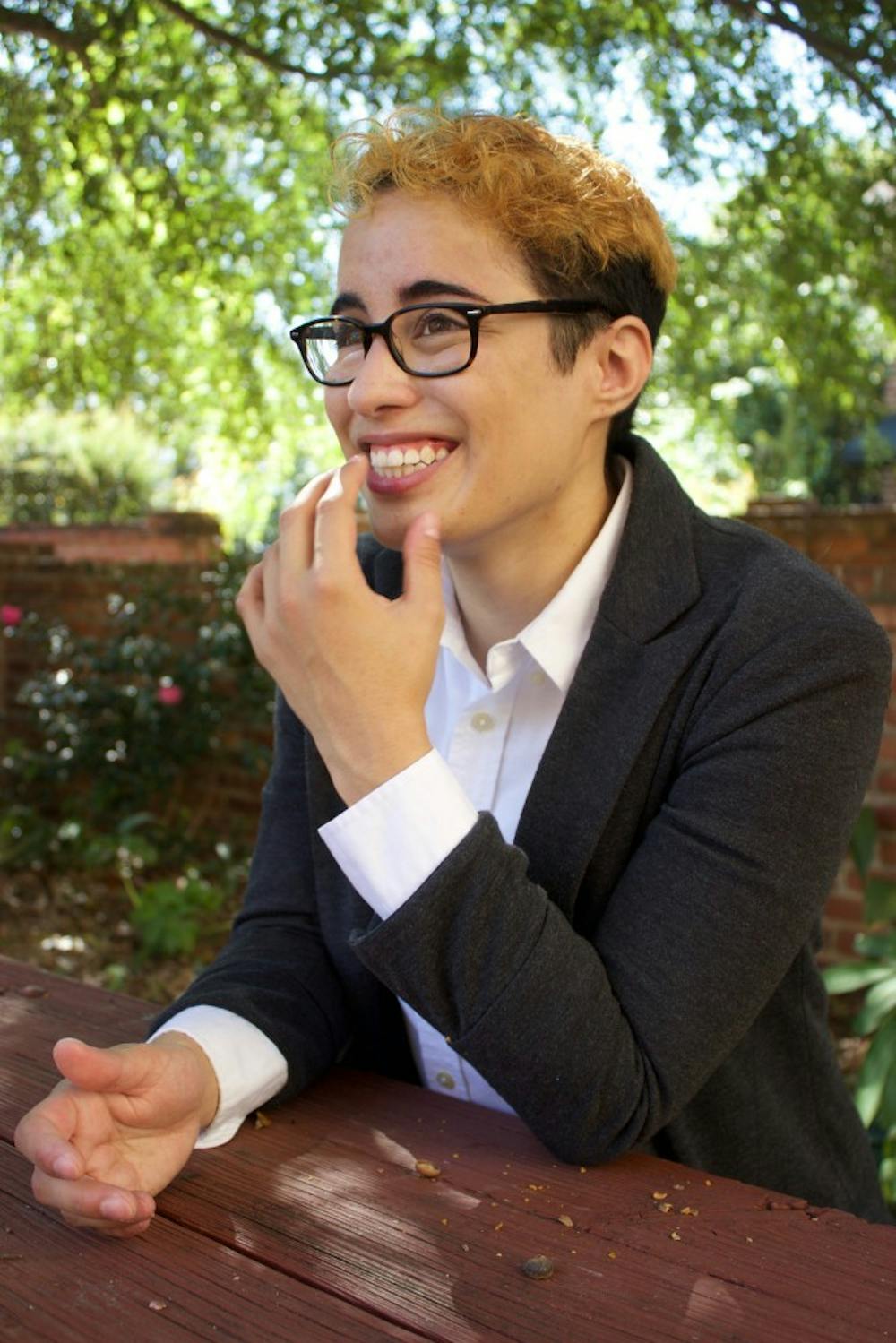Photo taken by Cole Lowery
“Gender is really such a concept, so it’s really hard to pinpoint where everything fits into place.”
Since he was young, Theo Santos had never considered gender to be black and white — or, in this case, an idea restricted to the categories of “female” and “male.” However, when he first arrived at USC, Santos found the university to be less than conducive to this fluidity of identity.
“The resources and staff and programs were very outdated,” Santos says. There was no organization that trans students could call their own. Seeing a hole in the fabric of the university, Santos decided to help sew it up and started what is now known as the Trans Student Alliance.
Now a fourth-year Honors College student at USC, Santos is the president of the TSA. Since its conception, the organization has undergone many changes, but it has helped to transform the college campus and the surrounding city into a safer place for trans people. Through screenings, panels and meetings, the TSA has become an integral part of the trans community, even spearheading protests of the proposed S 1203 bill in early 2016. The S 1203 bill aimed to control which bathrooms trans people could use, designating that people had to use the bathroom that corresponds with the gender listed on their birth certificate. North Carolina passed the similar HB2 bill last fall and has faced extreme outrage from politicians, citizens and businesses.
More than 100 trans youth and allies alike lined up to give testimonies in opposition to the proposed bill in South Carolina. “It was really moving and really great to see everyone come out, speaking about their stories and how this bill would directly impact them,” Santos says. “It was really powerful.”
After spending around three years working to improve conditions for transgender students both inside and outside of the university, Santos is glad to see the results of the TSA’s hard work bear fruit for future classes to pick. With an increasing number of gender neutral bathrooms, name-change forms and counseling services, the university has undergone a transition of its own.
“I’m just really excited for what the future holds,” Santos says. “Even though progress sometimes may be slow, I think it’s important that students on campus know that they do have the power to make change happen.”



